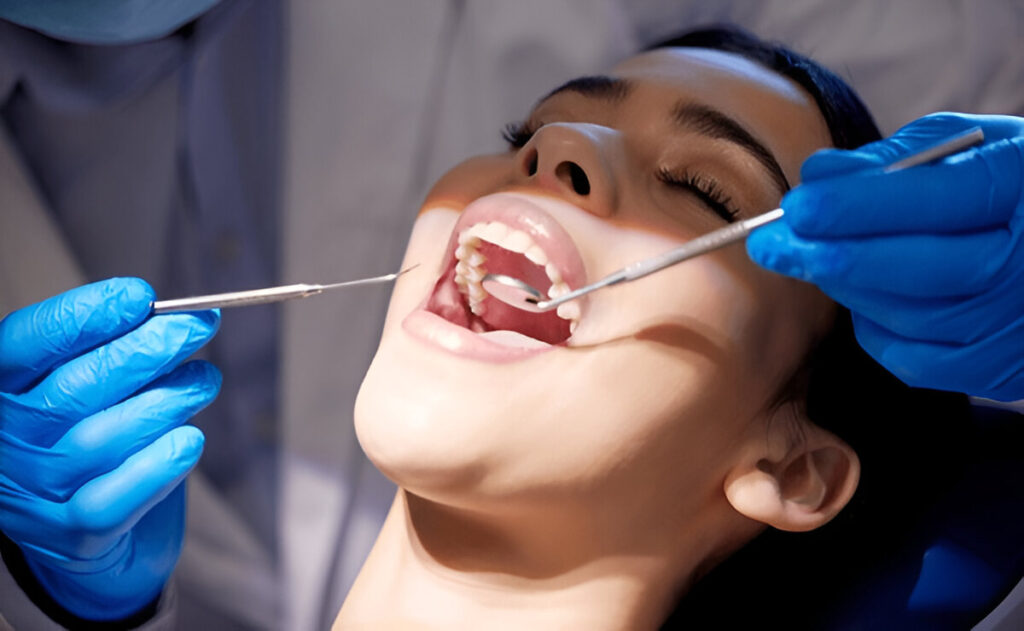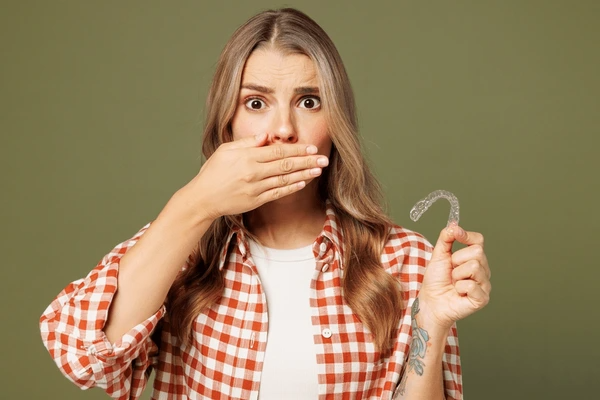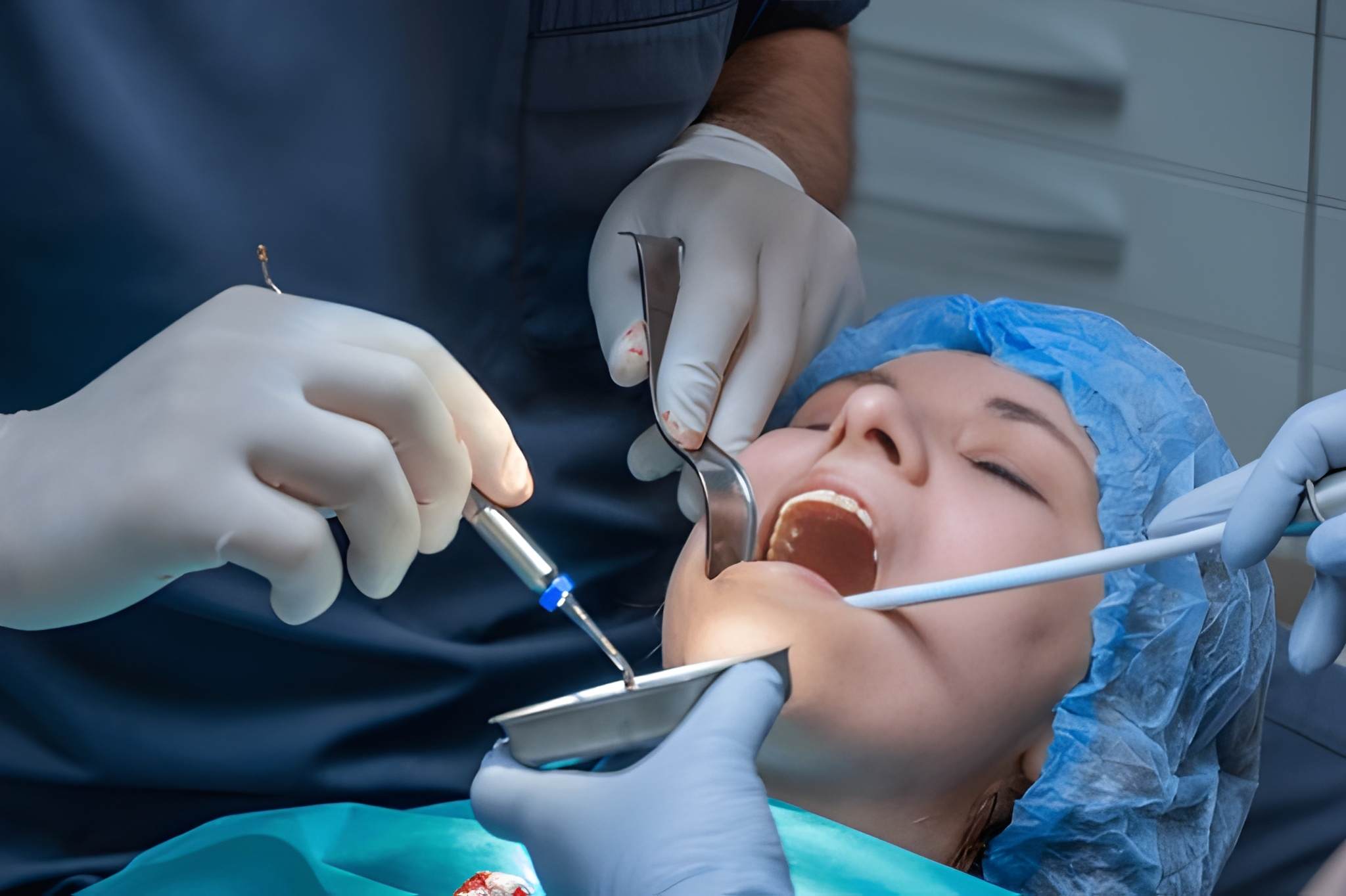Aging is accompanied by innumerable changes, both overt and subtle. While some concentrate on skin care, mobility, or diet, stress is still accorded to oral health as one of the most underestimated yet critical factors in maintaining long-term wellness. In older adults, the condition of their mouth tends to parallel their overall physical and psychological health. Oral health neglect can result in chain reactions of other health issues that influence quality of life, eating habits, speech, and self-esteem.
This in depth manual will delve into the effects of mouth care among seniors, and how adherence to important senior oral health guidelines can avoid illness, enhance satisfaction with life, and even contribute to longevity.
Learning About the Relationship Between Aging and Oral Health
Oral health is more than healthy teeth. It includes gum health, saliva secretions, dental hard structure, and even tongue health. All of these areas are challenged with age by physiological changes, side effects of medications, and decreased availability of dental visits. Therefore, maintaining stress oral health in the aging population is not merely a cosmetic issue it’s a medical imperative.
Studies indicate that the lack of good oral hygiene among the elderly is closely associated with systemic diseases like cardiovascular disease, diabetes, and malnutrition. This not only makes oral care for the elderly a priority but also immediate.
The Silent Crisis: Gum Disease in Seniors
Gum disease in seniors is often chronic and also often undiagnosed. Gingivitis and periodontitis are the two primary forms of gum infection in the elderly. If left untreated, these may lead to inflammation, pain, bone loss, and tooth loss.
Risk factors include:
- Reduced manual dexterity with improper brushing
- Medication side effects (leading to dry mouth)
- Infrequent dental checkups
By incorporating senior oral care advice such as electric toothbrush, flossing devices, and antiseptic mouth rinses, older adults are able to lower their risk for gum problems dramatically.
Dry Mouth: A Prevalent But Forgotten Complaint
Xerostomia, or dry mouth, is a prevalent problem in the older adult. Decreased salivary flow not only is painful but also enhances susceptibility to cavities and infections.
Solutions for dry mouth elderly are:
- Consuming water regularly during the day
- Refining or eliminating alcohol and caffeine
- With prescribed saliva substitutes or stimulants
- Chewing sugar-free gum to stimulate natural saliva
Treatment of this problem is a must in any overall plan for dental care in elderly. Recurring dryness of the mouth can hamper digestion, decrease appetite, and influence general health.
The Link Between Oral Health and Nutrition in Seniors
Missing teeth, gum disease, and ill-fitting dentures can cause chewing and swallowing problems. Accordingly, elderly individuals might avoid nutrient-dense foods such as raw fruits, vegetables, and meats. These nutritional imbalances can lead to fatigue, immune suppression, and unintentional weight loss.
One of the most essential senior oral health suggestions is to preserve at least 20 functional teeth (preferably in opposing pairs) to facilitate effective mastication. Seniors who wear dentures should also have them inspected regularly for proper fit to prevent sores, infections, and discomfort.
Aging and Tooth Loss Prevention
Tooth loss can be viewed as a natural progression of aging. But today’s dentistry disagrees. With proper care methods, aging and tooth loss prevention isn’t merely plausible—it’s strongly attainable.
Prevention tips:
- Daily brushing with fluoride toothpaste twice a day
- Scheduling regular dental cleanings and checkups
- Staying away from sugary food and beverages
- Controlling systemic health issues (such as diabetes)
- Reducing tobacco and alcohol consumption
Many seniors benefit from dental sealants, fluoride treatments, or implant-supported prostheses, helping them maintain strong dental function well into their 70s, 80s, and beyond.
The Psychological Impact of Poor Oral Health
A confident smile promotes confidence. In contrast, missing or discolored teeth, chronic bad breath, or visible gum disease can cause embarrassment and social isolation. Studies have demonstrated that poor oral hygiene is associated with reduced self-esteem and even depression in older people.
Tackling stress oral health isn’t merely about bodily health it’s about mental well-being. Seniors with good oral hygiene demonstrate greater happiness, social integration, and life satisfaction.
Comprehensive Oral Health Screening: A Step Beyond the Visual Inspection
Most seniors are unaware that dental examinations need to transcend mere “looking in the mouth.” Comprehensive oral examinations involve screening for:
- Oral cancer
- Bone density
- Prosthesis wear and fit
- Tongue and palate status
- Salivary gland function
Practices such as Dental Scotland tend to focus on full-spectrum diagnostic procedures to make sure no underlying conditions go unchecked. This forward-thinking approach is essential to maintaining long-term health.
Challenges to Accessing Dental Care Amongst the Elderly
A number of barriers hinder oral care for elderly hard to achieve:
- Physical limitations (mobility, impaired vision)
- Cognitive impairment (Alzheimer’s, dementia)
- Limited insurance or finances
- No transportation or support
Caregivers are important to apply senior oral health advice, including brushing, appointment, and diet monitoring. Home dental services are also becoming increasingly popular in order to address the needs of immobile or frail elderly.
Regular
The Importance of Dental Visits in Elderly Wellness

Regular visits to the dentist aren’t only for repairing issues—they’re for avoiding them. Seniors should ideally see their dentist every 6 months, or more often if they have chronic oral or systemic diseases.
Professional care on a regular basis does the following:
- Detect early symptoms of gum disease
- Control prosthesis wear
- Adjust medications that affect saliva
- Track changes in oral tissues that can indicate cancer
Regular appointments also allow for the discussion of dry mouth elderly solutions, denture adjustments, and customized care plans for each patient.
Modern Dental Solutions for the Elderly
Dental technology has advanced significantly, providing older adults with a range of comfortable, effective ways to replace or restore missing teeth.
Some of the most successful treatments are:
- Implant-supported dentures: Secure, stable, and enduring
- Removable partial dentures: Affordable and simple to clean
- Fixed bridges: Functional and aesthetic replacement of missing teeth
When these treatments are coupled with tooth loss prevention and aging interventions, seniors have a significantly enhanced quality of life.
Establishing a Senior Oral Health Routine
Dental health relies on daily habits. Each senior deserves to have an individualized routine best suited to their unique needs and capabilities.
A simple senior oral hygiene routine should incorporate:
- Employing a soft-bristled toothbrush or electric toothbrush
- Flossing or interdental brushing between teeth
- Rinsing with mouthwash that does not contain alcohol
- Cleaning dentures on the daily basis with solutions that are recommended
- Drinking enough water
- Having routine cleanings and oral examinations scheduled
Consistency is of utmost importance, particularly when addressing gum disease seniors often face or dry mouth elderly solutions seek to alleviate.
Prevention Begins At Home, But Professional Assistance Is Crucial
Regardless of how much care is taken at home, professional advice is needed. Dentists are qualified to spot early signs of problems and offer remedies before small problems develop into significant health issues.
Top senior oral health advice from dental experts can be:
- How to modify brushing with arthritis
- How to cope with medications that cut saliva
- Nutritional modifications to safeguard enamel
- Prosthetic solutions for lost teeth
Dental Scotland provides these services in several locations throughout Scotland, offering care to all age groups, including the elderly.
How Stress Negatively Impacts Seniors’ Oral Health – A Closer Analysis
Chronic stress can have a tremendous impact on seniors’ overall health, but its influence on oral health goes largely unnoticed. As individuals age, they naturally undergo physical changes and life transitions such as retirement, loneliness, medical conditions, or death of loved ones that increase stress levels. Sadly, this emotional pressure is usually expressed in the mouth.
One of the most prevalent stress-related dental problems is bruxism, the frequent grinding or clenching of teeth, most often at night. It can cause worn teeth, pain in the jaw, headaches, and even cracked fillings. Stressed older adults can also develop dry mouth because stress can disrupt hormone levels and diminish the amount of saliva produced, making tooth decay, gum disease, and mouth pain more likely.
Additionally, chronic stress compromises the immune system, exposing older adults to infections such as periodontitis, a serious type of gum disease. This additionally leads to inflammation, bleeding gums, and tooth loss if not treated. Furthermore, mental exhaustion from constant stress can lead to poor oral health habits, missed dental visits, and unhealthy eating habits.
To keep stress oral health at bay, the elderly need to indulge in stress-reducing activities such as meditation, gentle exercise, and social interaction. Regular dental checkups and emotional support from family members or caretakers also help in maintaining oral health and general well-being later in life.
Conclusion: Accepting Healthy Aging with Dental Scotland
A healthy, functional smile is more than looks it is a reflection of overall health. By recognizing and meeting the distinct dental needs of seniors, we can fight the forces of time with preventive care and attention.
Dental Scotland is committed to assisting senior citizens in maintaining their best oral health through treatments such as:
- Thorough oral examinations
- Cosmetic dentistry and tooth restoration work
- Preventive cleaning and hygiene schedules
- Orthodontics and prosthetics
- NHS and private treatment plans
Whether you’re treating gum disease seniors, looking for dry mouth elderly remedies, or working on aging and tooth loss prevention, the journey to healthy aging begins with your smile.
Dental Scotland will lead the way every step of the way to improved health, confidence, and longevity.





